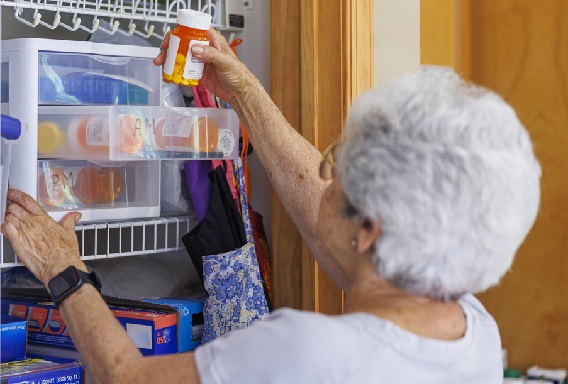Creating a System for Managing Mesothelioma Medications

One of the realities of mesothelioma treatment is the need to manage medications. Depending on the type of treatment a person has recently had or is undergoing, that may be a small or a really big task.
It’s easy to find yourself with mesothelioma medications that you take once daily, some you must take in the morning and some you take in the evening. There are also medications that you take twice a day or every so many hours. Other medications you take as needed, but with maximum amounts per day.
It can be taxing for anyone to keep up with them all! In my personal experience, someone who has had major surgery, chemotherapy or any other mesothelioma treatment would find it very difficult to reliably medicate themselves while experiencing significant pain, nausea and fatigue.
In the periods soon after my own mesothelioma surgeries and rounds of chemotherapy, I found I had very little concept of time. Sometimes, if I was in pain, time would seem to move excruciatingly slowly. If I was going in and out of consciousness (restless sleep), which was common, I had absolutely no idea if minutes had passed or hours. Sometimes I was not sure if it was morning or evening.
Additionally, both my short term and longer term memories were virtually non-existent. Obviously, a person in that condition cannot be relied upon to keep up with their own medications.
How My Family Caregiver Organized My Medications
I was completely dependent on my wife as my primary caregiver when I returned home from the hospital. However, she was also under a huge amount of stress herself.
Not only was she caring for me, but she had to work and manage all the other aspects of our lives too. Life doesn’t stop because someone gets sick.
That made it hard for her to keep up with my medications. A solution had to be found. For us, it was sorting all the different medications into groups and putting them in different locations or containers to try to reduce the possibility of casual mix-ups.
It’s important to note that some medications, particularly oral chemotherapy drugs, cannot be stored in pill organizers or pill boxes (one of those plastic containers with Monday-Friday/AM/PM dividers). While they can be helpful tools for keeping some types of medication sorted, they may not always work for all mesothelioma patients.
Next, and most importantly, my wife had a notebook where she kept a record of how often and the specific times each medication was supposed to be taken. When my condition improved, this system made it possible for me to manage my medication myself.
While I don’t need to rely on the notebook much anymore to remember my medication schedule, I still continue to separate my medications in groups to make it easier to keep up with them. For supplements and medications that can be placed in a pill box, I do also use one.
I can personally attest that none of these things is guaranteed to prevent you from forgetting as a caregiver to give medication or as a patient to take the medications. An alarm on your mobile phone can help remind you.
I know many people probably prefer to use an electronic device or devices to keep track of it all. I can also personally attest that it won’t help if you forget to charge the device.
The bottom line is keeping track of medications can be a big job. You have to find the system and tools that work best for you.